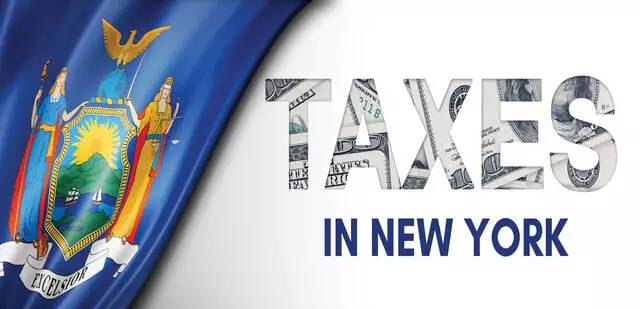
The Kids are back to school and the DTA is back to issuing determinations and decisions that are mostly timies and dismissals for lack of jurisdiction. Matter of Bryant is of some interest in that the credit denial in that case was based on a lack of information from an agency that was not the NYS Tax Department. The taxpayer’s inability to get information from the other state agency was the reason he could not satisfy his burden of proving entitlement to the credit. It sounds like Petitioner made many attempts to get the information but was stymied. Did the information exist? Was the inability to retrieve the information due to some failure on the part of the other administrative agency? We’ll probably never know.
Determinations
Matter of Friery (Supervising ALJ Gardiner, August 22, 2024); Article ?/Jurisdiction (Zoe Peppas).
Petitioner filed a petition at DTA. However, Petitioner failed to provide a copy of the statutory notice at issue along with his petition. The Division requested a copy of the statutory notice, and one was still not provided to the Division. Petitioner’s petition was, accordingly, dismissed with prejudice. Note to self: if the caption of the case does not indicate the Tax Law Article involved, there’s going to be a problem with jurisdiction.
Matter of Hamza (Supervising ALJ Gardiner, August 22, 2024); Div’s Rep. Emil Kambala; Pets’ Rep. pro se; Article 22/Timy (Pete Calleri).
Petitioners filed a request for conciliation conference in protest of a notice of deficiency, and BCMS issued a conciliation order on September 1, 2023, sustaining the notice issued to Petitioners. Petitioners appealed on February 22, 2024, and were later issued a notice of intent to dismiss the petition as untimely filed more than 90 days after the issuance of the conciliation order. The Division established both its general mailing procedures and that they were followed in mailing the conciliation order to Petitioners’ last known address.
Because the Petitioners filed their petition beyond the 90-day limitations period that started with the mailing of the Order, the SALJ determined that the petition was untimely and dismissed it with prejudice.
Decisions
Matter of Ahmed (August 15, 2024); Div’s Rep. Eric Gee, Esq.; Pet’s Rep. pro se; Articles 28 and 29/Motion to vacate a default (Zoe Peppas).
Petitioner filed a petition at DTA in protest of two conciliation orders. Judge Chu-Fong sent a letter to the parties informing them of a scheduled hearing and that a prehearing conference call would be scheduled. Shortly after, a prehearing conference call was scheduled. At the prehearing conference call, Petitioner did not appear.
A second prehearing call was then scheduled. Prior to that next call, a notice of hearing was issued to Petitioner, who did not respond. Again, at the second prehearing call, Petitioner did not appear.
At the formal hearing, the Division appeared by its representative, and Petitioner did not appear. Nor did Petitioner submit a request for adjournment. Judge Chu-Fong issued a default determination against Petitioner, denying the petition.
Petitioner filed an application to vacate the default determination, alleging unexpected health issues (back pain) rendered him physically incapable of traveling to the hearing. Petitioner provided no medical documentation, nor any documentation addressing the merits of his case.
Judge Chu-Fong found Petitioner did not provide any reasonable cause for his default and denied his petition to vacate the default determination.
Petitioner appealed to the Tribunal, arguing his medical condition prevented him from attending, that the default determination should not be upheld, and requested the Tribunal to consider new documentation of his disability.
The Tribunal found that Judge Chu-Fong had properly rendered a default determination, as Petitioner did not appear nor request an adjournment. It then found Petitioner also did not provide a reasonable excuse for his default, and that Petitioner did not establish a meritorious case as he submitted to the Tribunal documents only related to his medical condition and not of his case. Petitioner’s exception was denied.
Matter of Bryant (Tax Appeals Tribunal, August 15, 2024); Div’s Rep. Maria Matos, Esq.; Pet’s Rep. Me’Linda Bryant; Article 22/Noncustodial earned income credit (Chris Doyle).
I don’t know from personal experience, but apparently Tax Law § 606 (d-1) permits certain taxpayers to receive something called a “noncustodial earned income credit” (“NEIC”). To receive the credit, a taxpayer must: 1) be a resident of New York; 2) have attained the age of 18 years; 3) be the parent of a minor child or children with whom the taxpayer does not reside; 4) have an order in effect for at least one-half of the taxable year requiring the taxpayer to make child support payments; and 5) have paid an amount in child support in the taxable year at least enough to satisfy every child support order requiring taxpayer to make child support payments. Only the last requirement was in play in this case. The Division is not the child support police. That job falls to the Office of Temporary and Disability Assistance (“OTDA”) which, curiously has neither “child,” “dependent,” nor “support” in its name.
Petitioner claimed a NEIC on his 2019 return. The Division didn’t allow the credit since the OTDA reported to the Division that Petitioner didn’t satisfy orders that he make child support payments. At Petitioner’s conciliation conference, the Division reasserted that Petitioner was not on the list of taxpayers who satisfied the criteria for the NEIC. Petitioner claimed at his ALJ hearing that he had paid all of his child support and did not have a balance outstanding as of the end of 2019. And he claimed he and his representative had made several attempts to contact the OTDA to get confirmation that he had no balance due on his child support at the end of December 2019, without success.
The Tribunal agreed with the ALJ that Petitioner had not proven entitlement to the NEIC. Either party could have subpoenaed the information from the OTDA during the run-up to the ALJ Hearing. It seems like that would have resolved the issue with a degree of certainty.
Matter of Kowalewicz (August 15, 2024); Div’s Rep. Colleen McMahon, Esq.; Pet’s Rep. pro se; Article 22/Timy (Pete Calleri).
Petitioner filed a request for conciliation conference dated January 6, 2023, in protest of a notice of deficiency dated June 15, 2022. BCMS issued a conciliation order dismissing the request as untimely as it was filed beyond the 90-day limitations period. Petitioner filed an appeal protesting the order, and the Division brought a motion to dismiss or for summary determination. The ALJ found that the Division had met its burden of demonstrating the fact and date of the mailing to Petitioner’s last known address and concluded that Petitioner’s request for conciliation conference was untimely filed and granted summary determination to the Division.
The Tribunal agreed with the ALJ that the Division had proven both its standard practices and that they were followed to mail the Notice to Petitioner’s last known address on June 15, 2022. In arriving at its decision, the Tribunal noted that Petitioner never responded to the motion for summary determination at the ALJ hearing level, and thus conceded there were no facts to be contested.



